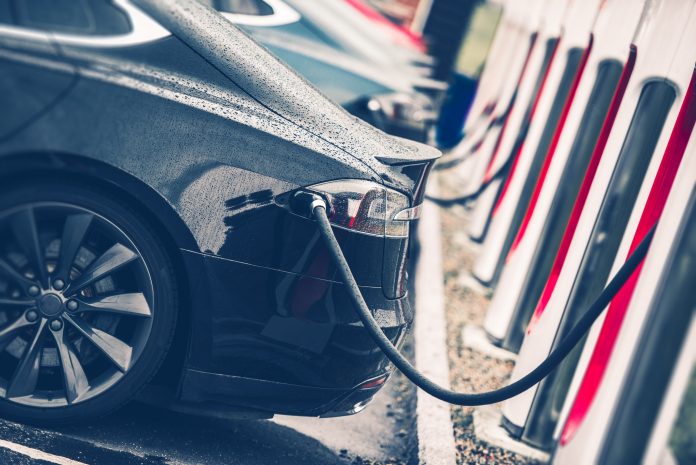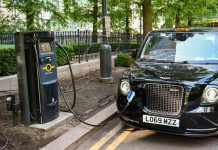Mike Palmer, Client Development Director at Nexus Vehicle Rental, discusses the opportunities and challenges associated with the adoption of electric vehicles
The impact of COVID-19 on the automotive supply chain has been – and continues to be – substantial, with countries that have been heavily impacted by the outbreak, such as China, Japan and South Korea, accounting for a significant share of global auto manufacturing. This has placed severe pressure on an industry that is already dealing with a downshift in global demand.(1)
The combination of coronavirus, Brexit and recent storms wreaking havoc on the UK has created increased demand for green original equipment manufacturer (OEM) parts that are warehoused and delivered from UK locations, as a solution to combat supply delays and the widespread lack of availability.
Whilst we continue to face the challenges surrounding the spread of COVID-19 and its impact on the UK, it is crucial that the fleet sector maintains the pace of change towards a greener future by electrifying mobility and that sustainability does not take a back seat as the country tackles the challenges of the pandemic and Brexit.
Opportunities associated with adopting EVs
Last month, the Government announced a range of measures to support the transport and mobility sector, including £12 million in funding for research and development (R&D) investment to support and accelerate the uptake of electric vehicles (EVs.)
Coupled with the earlier announcement that the Government would spend £500 million over the next five years to support the rollout of rapid charge points and the Rapid Charging Fund for businesses connecting to the electricity grid, this emphasises the Government’s commitment to developing more sustainable transport solutions.
It is positive to see that the Government is showing its continued support for the transition to cleaner technologies and it may provide some reassurance to businesses and drivers adopting EVs for the first time, as well as companies considering the move to green fleets. While there is still a very long way to go to ensure that the UK develops sufficient infrastructure to support businesses in adopting or transitioning to a greener fleet, it is encouraging to see we are moving in the right direction.
Legislation remains the key driver of change in the market with the introduction of Clean Air Zones (CAZs) and Ultra Low Emissions Zones (ULEZs), propelling the need for innovation in cleaner transport solutions. The Government is also facing mounting pressure to bring forward its ban on new fossil fuel vehicles by ten years to 2030, in order to accelerate the rollout of electric vehicles in the UK and in a move to help achieve its target of net zero emissions by 2050.
As part of its efforts to encourage the adoption to electric vehicles, the Government is reportedly also considering a new ‘zero-emission mandate’ scheme which will see car firms forced to sell more electric vehicles, even if demand is lower than other fuel types. The hope is that this will boost sales of electric vehicles and effectively drive down the costs. Supposedly, this will mean firms who fail to meet their electric car target could purchase credit from other manufacturers.(2)
Currently, one of the biggest criticisms of electric vehicles is what happens to their batteries once they degrade and must be decommissioned from plug-in vehicles. It was recently announced that German car maker BMW may have in fact found a resolution to this, by giving their batteries a second-life use as mobile power units to provide charging solutions for other plug-in cars.(3)
Challenges of adopting EVs
For some time, there has been concern that the UK’s infrastructure requires further support to push businesses and consumers towards greener mobility solutions and the current lack of charging points is on the main challenges for those thinking about making the transition, and a barrier to the wider adoption of EVs.
Several miles between charging points – or lack of access to points – can mean long-distance travel in an EV is more difficult and time consuming. In the Budget 2020 announcement Rishi Sunak claimed that, within a few years, no one will ever be more than 30 miles from a charging hub which, more than six months on, still appears a rather ambitious claim.
It is important that we acknowledge that businesses cannot just ‘go green’ overnight due to the huge upfront expenditures involved in the move which, in the current climate, will not be viable for many businesses. Businesses must consider the cost of the electric vehicles themselves and think about finding new ways of financing this investment, as well as looking at more financially viable options such as rental. There are other associated challenges of adopting EVs – other than the poor charging network – that should be considered, such more costly repairs and only specialist garages being able to carry these out properly. There also remains concerns around battery life making some cars defunct after a period – does this mean companies will need to reinvest every five years?
As we move ever closer towards the complete ban on new petrol, diesel, and hybrid vehicles by 2035, it is vital that fleet decision-makers and all company car drivers focus on moving towards operating and driving 100% electric vehicles.
Whilst the Government is clearly sign-posting fleets towards a greener future, the impact of widespread adoption of this technology will continue to prove a challenge in the coming years. The Government needs to start thinking about how they can further support the production of electric vehicles, as manufacturers had previously relied heavily on subsidies to stimulate demand for electrified vehicles.
In the longer term, this would also help to bring down the cost of electric vehicles to increase affordability and enable more businesses to see how this transition could be a realistic solution for them.
References
[1] https://www2.deloitte.com/global/en/pages/about-deloitte/articles/covid-19/understanding-covid-19-s-impact-on-the-automotive-sector.html
[2] https://www.express.co.uk/life-style/cars/1350373/electric-car-sales-targets-uk-upfront-costs-price
[3] https://www.thisismoney.co.uk/money/cars/article-8840535/amp/Retired-electric-car-batteries-used-mobile-charging-stations.html











